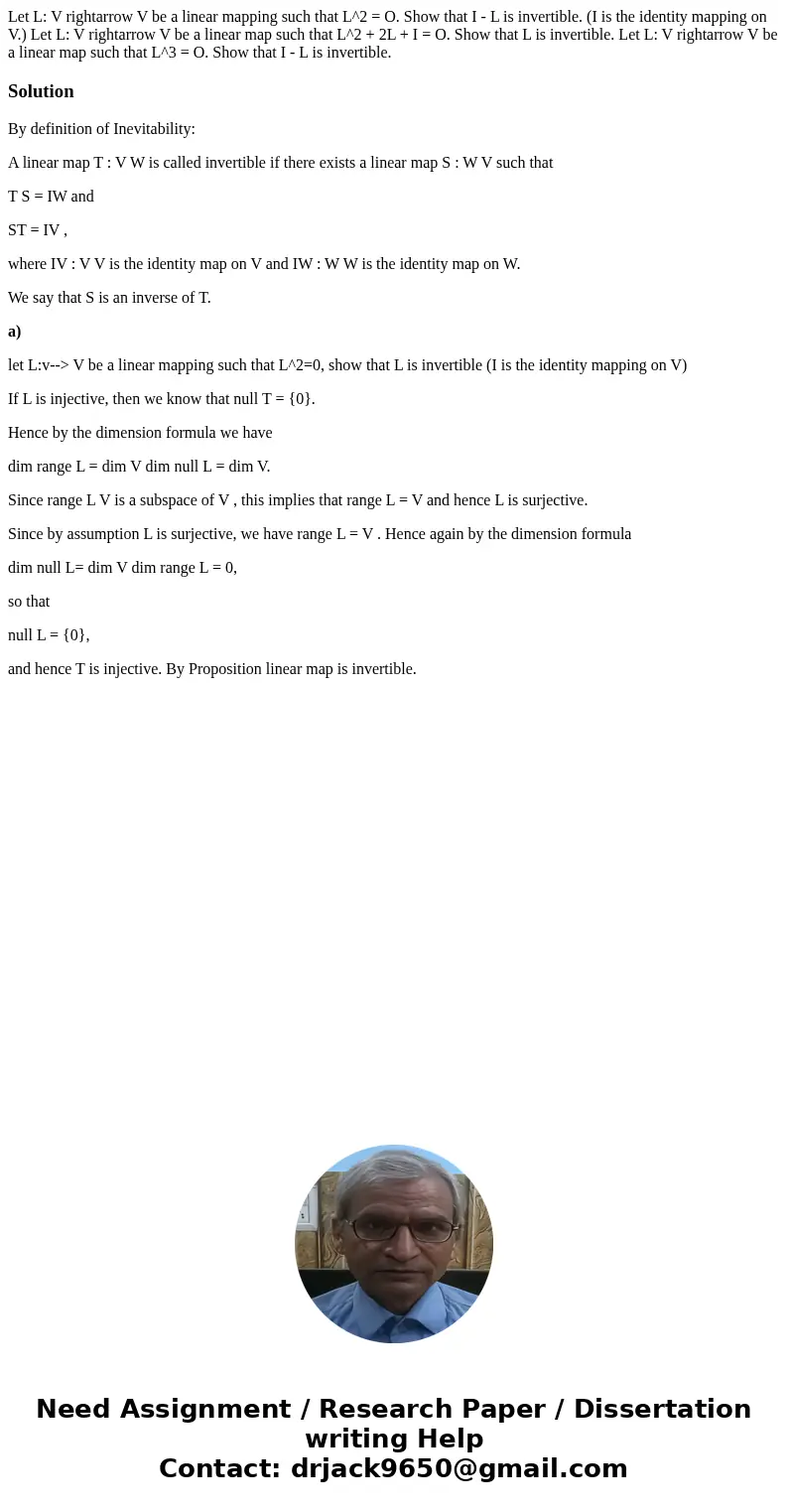Let L V rightarrow V be a linear mapping such that L2 O Sho
Solution
By definition of Inevitability:
A linear map T : V W is called invertible if there exists a linear map S : W V such that
T S = IW and
ST = IV ,
where IV : V V is the identity map on V and IW : W W is the identity map on W.
We say that S is an inverse of T.
a)
let L:v--> V be a linear mapping such that L^2=0, show that L is invertible (I is the identity mapping on V)
If L is injective, then we know that null T = {0}.
Hence by the dimension formula we have
dim range L = dim V dim null L = dim V.
Since range L V is a subspace of V , this implies that range L = V and hence L is surjective.
Since by assumption L is surjective, we have range L = V . Hence again by the dimension formula
dim null L= dim V dim range L = 0,
so that
null L = {0},
and hence T is injective. By Proposition linear map is invertible.

 Homework Sourse
Homework Sourse